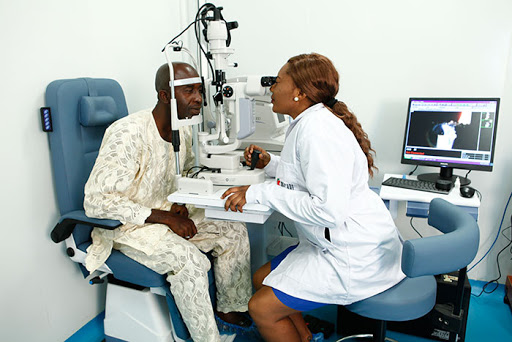Early Detection, Treatment Of Glaucoma Can Stop Damage – Ophthalmologist
Dr Jane Ifechukwu, Head of Department Ophthalmology, State House Medical Centre, Abuja, says glaucoma diagnosis is not end of world as early detection and treatment could stop damage to the eyes.
She said this on Friday in Abuja at the hospital’s commemoration of the 2024 World Glaucoma week with the theme “Uniting for a Glaucoma Free World”.
The annual observation which is designed to spread awareness and understanding about the importance of early detection of glaucoma began on March 10 to 16.
According to Ifechukwu, when one is diagnosed with glaucoma it is an indication to begin early treatment and does not necessarily mean that the person will go blind.
She, however, explained that the disease though irreversible if it leads to blindness, was treatable if detected early.
“What is important is for us to have awareness that there is a disease that occurs which does not show any symptoms or signs.
“Meanwhile the person is going blind gradually and that is why it is called the ‘silent thief of sight.
“If you are a black person (African descent) you are at risk of glaucoma, so every year make an attempt to check your sight, it is for all ages.
“However, if you are 40 and a black person and you have other associated diseases like hypertension, diabetes or a family history that someone went blind whether as a young or old person, it is an important risk.
“Then if you are told that you have glaucoma and you are treated you should come for follow up, even when you are placed on drugs it is important to come back for a check-up.”
She said that there were different modalities of treatment and that the treatment was individualised, based on each patient’s level of damage.
She, therefore, advocated routine check-up yearly, adding that blindness affected people economically.
According to her, blindness affects people economically, such that they cannot fend for themselves and are cut off from social circles which can also lead to mental issues and depression.
As for the causes of the disease, Ifechukwu said that it was basically hereditary.
She added that there were class of drugs called steroids which if taken for too long may predispose one to the disease because it might cause increased pressure on the eyes.
Ifechukwu, who further said that an injury to the eye might cause the disease, added that incomplete follow up after an eye surgery could also lead to the disease.
Dr Damian Echendu, the Director/Head, Optometry Unit, said that marking the World Glaucoma Week was very important to create awareness on glaucoma.
Describing it as a group of diseases that lead to gradual loss of sight, he said it usually affected the optic nerve.
“Vision is very important as it contributes to more than 80 per cent of what we do in life.
“If one loses his or her vision it can actually affect their lifestyle, their health, their resources, and income among others.
“Whatever we do in life is motivated by our vision, so the situation where one loses their vision can affect their livelihood.
“So getting your eyes checked today will reduce the rate at which one’s life is being diminished.”
Echendu, who said that the programme began on Monday with free screening and those, suspected to have the disease were booked for further eye examinations.
A beneficiary of the free screening, Miss Mercy Precious, said though she did not have anything wrong with her eyes she needed to attend the free routine check.
“It turns out that I have debris in my eyes and allergies and they prescribed an eye drop for me to use and an advise to come for eye check-up at least twice a year even if I do not have anything wrong with my eyes.
“I think everybody should get their eyes checked for glaucoma and other diseases.”
The News Agency of Nigeria (NAN) reports that glaucoma is the world’s second leading cause of blindness with an estimated figure of over 80 million people affected.




